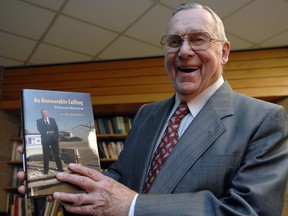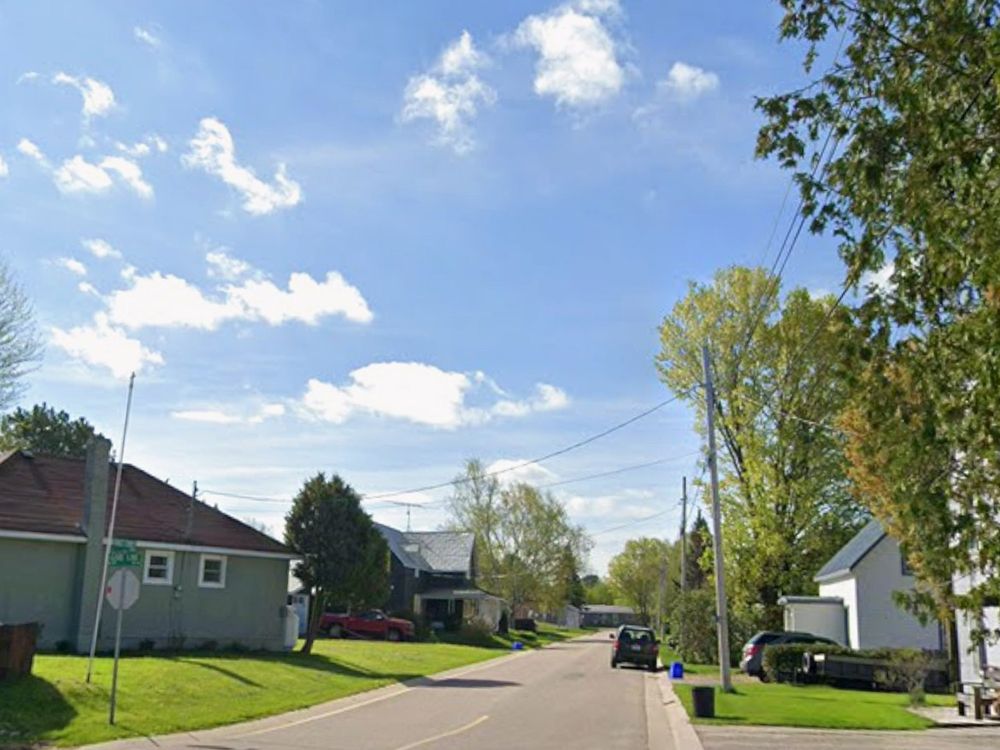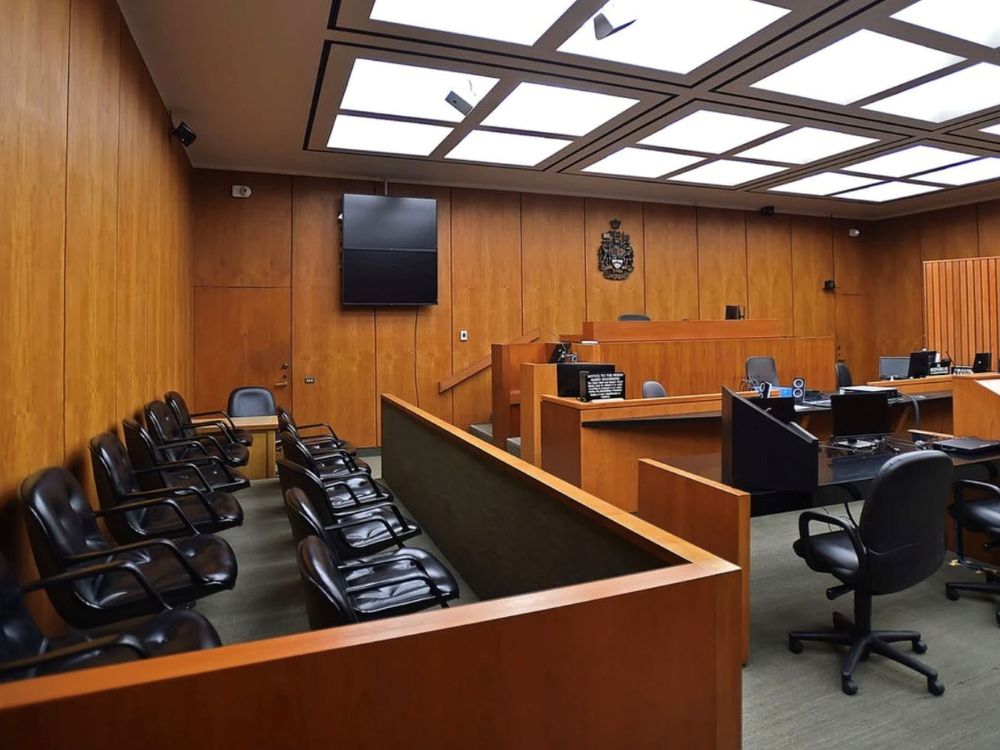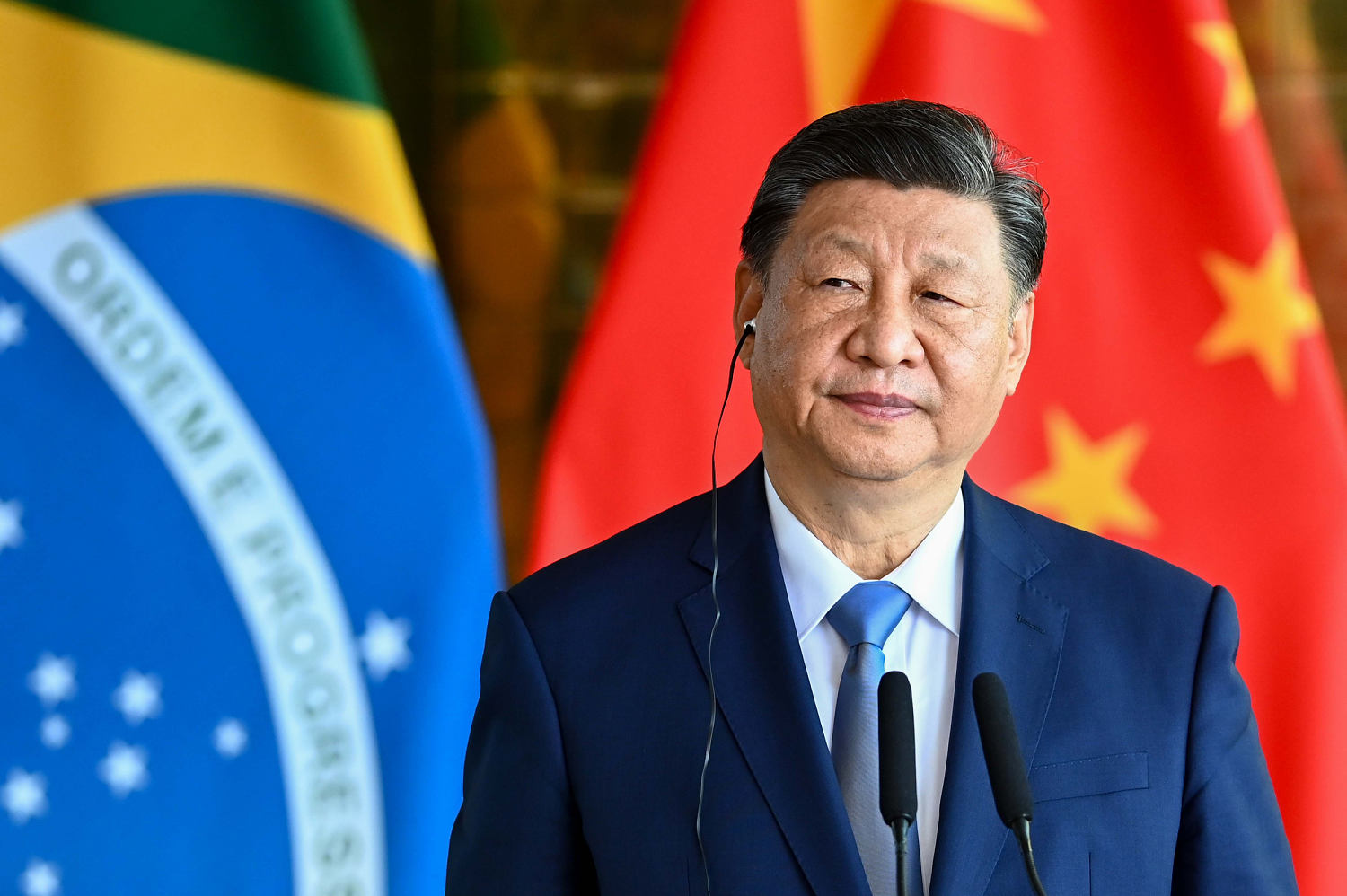
Article content
On Thursday morning, the Conservative political operative and legal scholar Howard Anglin tweeted a remarkable fragment of Canadian history: a long interview conducted in 2005 with Allan Blakeney (1925-2011), who served as New Democratic premier of Saskatchewan from 1971 to 1982.
THIS CONTENT IS RESERVED FOR SUBSCRIBERS
Enjoy the latest local, national and international news.
- Exclusive articles by Conrad Black, Barbara Kay and others. Plus, special edition NP Platformed and First Reading newsletters and virtual events.
- Unlimited online access to National Post.
- National Post ePaper, an electronic replica of the print edition to view on any device, share and comment on.
- Daily puzzles including the New York Times Crossword.
- Support local journalism.
SUBSCRIBE FOR MORE ARTICLES
Enjoy the latest local, national and international news.
- Exclusive articles by Conrad Black, Barbara Kay and others. Plus, special edition NP Platformed and First Reading newsletters and virtual events.
- Unlimited online access to National Post.
- National Post ePaper, an electronic replica of the print edition to view on any device, share and comment on.
- Daily puzzles including the New York Times Crossword.
- Support local journalism.
REGISTER / SIGN IN TO UNLOCK MORE ARTICLES
Create an account or sign in to continue with your reading experience.
- Access articles from across Canada with one account.
- Share your thoughts and join the conversation in the comments.
- Enjoy additional articles per month.
- Get email updates from your favourite authors.
THIS ARTICLE IS FREE TO READ REGISTER TO UNLOCK.
Create an account or sign in to continue with your reading experience.
- Access articles from across Canada with one account
- Share your thoughts and join the conversation in the comments
- Enjoy additional articles per month
- Get email updates from your favourite authors
Sign In or Create an Account
or
Article content
As premier, Blakeney was a pivotal figure in the negotiations that led to the patriation of the Canadian Constitution. He was, in other words, one of the last surviving framers of the Constitution Act, 1982. Blakeney had made common cause with Conservative premiers in fighting against Prime Minister Pierre Trudeau for a “notwithstanding clause,” the last-ditch guarantee of parliamentary supremacy that is embedded in our Charter of Rights.
Article content
Article content
Article content
This clause, deployed this week by the Alberta government to immunize a law sending striking schoolteachers back to work, is the subject of the interview. (The interviewer is Gareth Morley, now a judge of the B.C. Supreme Court.) It is essentially a prolonged defence of the notwithstanding clause from a social-democratic point of view — the principled left-wing case for the clause. Perhaps most Canadians aren’t aware that such a thing could and did exist. The New Democrats of today, especially the ones in Alberta, won’t be quick to remind you.
Article content
By signing up you consent to receive the above newsletter from Postmedia Network Inc.
Article content
Blakeney was concerned with preserving the possibility of a socialist future for Canada, and wanted legislatures to have the power to make social-engineering decisions that might involve some injury to legitimate individual rights. But he was a democrat, a genuine dyed-in-the-wool democrat: he believed that legislatures were the proper place for the final power of political decision. He didn’t trust judges enough to let them clamber upward to the apex of the constitution, describing them as inevitably “handmaidens of the business establishment.” He was horrified by some early Charter cases with pro-business implications, in much the same way that American left-wingers are still going nuts twice a week over Citizens United v. FEC.
Article content
Article content
You might not agree with the idea that parliamentary supremacy is meant to serve as a shield for socialism, and the good Lord knows I don’t; there are principled Canadian libertarians like Leonid Sirota who militate against the notwithstanding clause for precisely this reason. But if you don’t have a notwithstanding clause, you create the possibility that appellate courts, which are drawn exclusively from members of one profession — indeed, of one guild — accumulate ever-greater powers to decide high-level social and economic questions. Elected politicians, love them or hate them, have a variety of backgrounds and a built-in sensitivity to public opinion. In the (immediately post-Chaoulli) words of Blakeney, who was a paid-up member of the guild:
Article content
Article content
“Judges are not accountable to the public. They are not supposed to be accountable to the public: that is what judicial independence means. They make their decisions on the basis of information provided to them by the parties to a particular lawsuit.… Government’s core functions, on the other hand, are to make and enforce laws, to raise taxes and spend them. You can always say that the way they do these things infringes somebody’s rights. If we have waiting lists for surgery in Quebec, then someone might die.… But if you spend more on health care, you spend less on highway maintenance or on prisons. And guess what? Spending less on highway maintenance means someone will die. Spending less on prisons means someone will die.”
.png)
 8 hours ago
10
8 hours ago
10






























 Bengali (BD) ·
Bengali (BD) ·  English (US) ·
English (US) ·